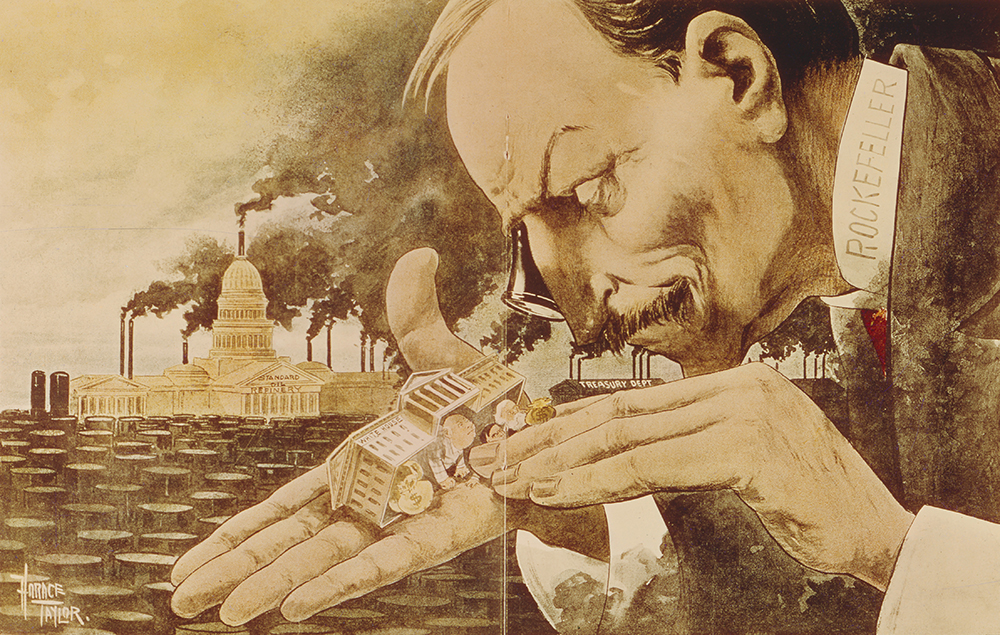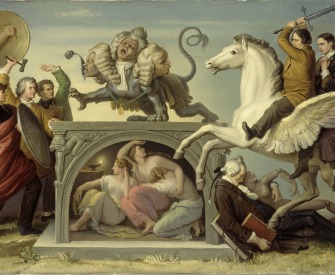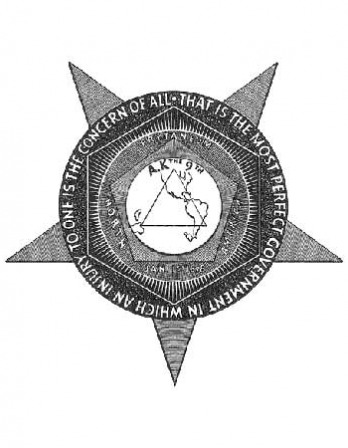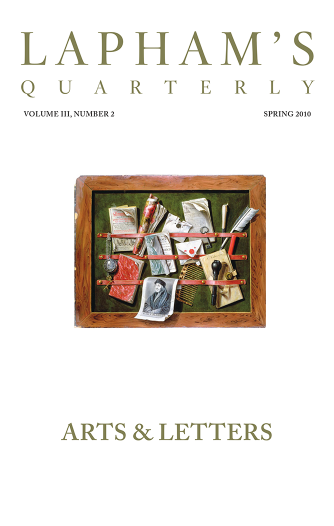Among the many disgraceful scenes of outrage which took place yesterday, that which occurred in the township of Moyamensing at a late hour in the evening appears to have been the most serious in its consequences. Besides the destruction of a block of five handsome and valuable houses, the property of our townsman Mr. Robb, it appears that several individuals were seriously injured and perhaps one or more killed. The particulars of this dreadful scene of violence, as well as we could learn from the various contradictory statements made on the ground this morning, appear to be as follows.
The Whigs of Moyamensing had established their headquarters in the tavern at the corner of Christian and Ninth Street, opposite the District Hall, where the elections are held. The Jacksonmen established their headquarters on the opposite side of the way, by the erection of a booth on the pavement, having failed in the attempt to procure the use of an untenanted house in the same row with the Whigs. In the course of the evening, the Jackson party, being much stronger on the ground than their opponents, committed, it is said, many assaults upon peaceable Whig voters, by breaking their lanterns, tearing away their electioneering bills, and finally in knocking down and beating them. This course of conduct appears to have been pursued until human nature could submit to the aggravating insults no longer. The Whigs made a rally and, to punish the insolence of the Jacksonmen, made a rush on them and cut down their hickory pole. The ground then became quiet—the disturbance was considered as finally settled, and peace was fully restored. This state of things, however, continued but a short time. The opposing party, in the interim, had been collecting their forces from Southwark, the city and upper districts, and suddenly and unexpectedly appeared on the ground in great numbers and made a desperate attack upon the Whig headquarters, driving into the house nearly every Whig on the ground. They deliberately set fire to the splendid liberty pole in front and the watch box at the corner and then entered the tavern and adjoining houses in the row—destroyed the furniture in those which were tenanted—threw out the beds and bedding, etc., and piled them up in the street and set the mass on fire.
Still unsatisfied with the work of destruction, the mob ransacked the lower rooms of the Whig tavern, threw out the furniture upon the blazing pile in the street, and grossly assaulted all upon whom they could lay their hands. The landlady and her shrieking children were driven with violence into the street and severely maltreated. The persons in the upper rooms, now considering that the object of the mob was to murder them, procured firearms and, from the third-story windows and the roof, fired into the street. Blank cartridges, it is said, were used first, but these were insufficient to intimidate the mob. Subsequently, we learn, several in the street were injured by buckshots, and it is said that one individual died while being conveyed to the hospital.

The Trust Giant’s Point of View, by Horace Taylor, 1900. Snark / Art Resource, NY.
The crowd in front, who stood their ground firmly and replied to those inside by tremendous volleys of bricks, stones, and other missiles, at length made a desperate rush inside and cleared the premises not only of human beings but of furniture, leaving not a particle untouched. Soon after, whether from accident or design, we are unable to state, the tavern took fire, and the flames spread rapidly and fiercely in every direction. The situation of affairs was now awful and appalling. The mob had entire possession of the whole place, not a solitary anti-Jackson man having the temerity to show his face. The alarm of fire was sounded, and the fire companies arrived on the spot, but the mob would not permit them to go into operation. Many were openly threatened that if they put a drop of water on the fire, they would be beaten. One of two companies, however, persisted in their exertions, and one attachment was let out, but it was soon dragged away by main force, and the whole block of buildings was permitted to burn down.
These particulars embrace, we believe, all the facts of the case, without coloring or partiality. The scene altogether was most disgraceful to the country. The houses destroyed were the property of an unoffending citizen, who had acquired them by hard industry—his loss will probably not fall short of five thousand dollars.
An article in the Philadelphia Gazette. One of Pennsylvania’s oldest townships, Moyamensing was incorporated into Philadelphia in 1854. Located near the Delaware River docks, the township was largely populated by free African Americans and pro-Jackson Irish immigrants. Poll violence in Moyamensing was not limited to 1834; about a decade later, one witness described how on Election Day, gangs of Whigs and Democrats would assemble on opposite sides of the street until “a rush would be made for possession of the polls, and the best fighters would get possession.”
Back to Issue





